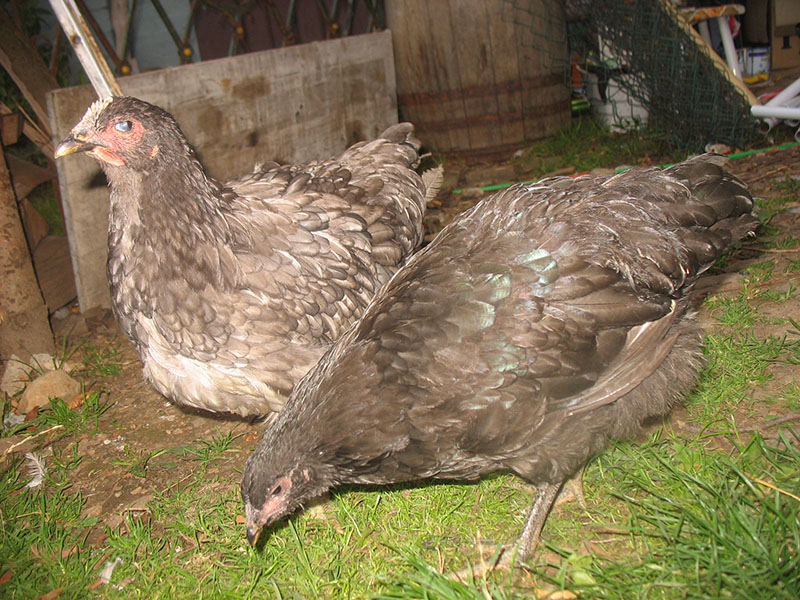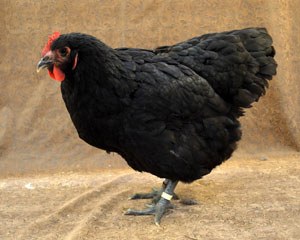Jersey Giant Chickens
 The Jersey Giant is a large bird that was developed in the 1870's in New Jersey to meet the demand for heavy fowl. Developed by the Black brothers, it was originally called the Jersey Black Giant. Giants were bred from crosses of Orpingtons, Javas, and Langshans, becoming and remaining the largest chickens developed in America. They are rugged birds but because they grow a large frame first and have little meat until about six months, they have not been used in industry, which prizes a rapidly growing bird.
The Jersey Giant is a large bird that was developed in the 1870's in New Jersey to meet the demand for heavy fowl. Developed by the Black brothers, it was originally called the Jersey Black Giant. Giants were bred from crosses of Orpingtons, Javas, and Langshans, becoming and remaining the largest chickens developed in America. They are rugged birds but because they grow a large frame first and have little meat until about six months, they have not been used in industry, which prizes a rapidly growing bird.
Characteristics
Jersey Giants are the largest breed in the American Class. They should be rugged, with an angular shape, single comb and black (with willowish tinge) shanks in the Black variety and dark willow shanks in the White variety. The Jersey Giant will go broody but is not the best choice for incubating and brooding because of their size. Their tendency to grow a big frame first and cover it with meat later make them a poor fit for today's conditions. The meat yield is disappointing until they are six months or older. No fowl with black plumage or dark or willow shanks has ever remained popular in this country for long, although they used to be more widespread. However, good specimens do have an appeal, mainly because of their size.
Standard Weights
 Cock: 13 lbs
Cock: 13 lbs
Hen: 10 lbs
Cockerel: 11 lbs
Pullet: 8 lbs
Varieties
- Black
- White
Skin Color
Yellow.
Egg Shell Color
Brown.
Uses
The Jersey Giant is a dual-purpose fowl for meat and eggs. This fowl lays around 150-200 eggs per year depending on conditions such as the weather and level of comfort for the chickens.
References
Chicken Breeds and Varieties (A2880), John L. Skinner, University of Wisconsin-Madison
The Livestock Conservancy PO Box 477, 33 Hillsboro St, Pittsboro, NC 27312
Miller's Jersey Giant Farm, Bern, Kansas
Lewis, Celia. "Breed Profiles: Jersey Giant." The Illustrated Guide to Chickens: How to Choose Them, How to Keep Them. New York: Skyhorse Pub., 2011. 100-01. Print.
